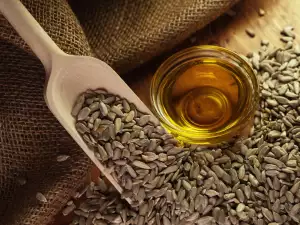Manganese is a mineral that is involved in many enzyme systems in the body. It is found in many natural sources, but only appears in very small amounts in human tissues. The human body contains a total of 15-20 milligrams of manganese, most of which is found in the bones and the rest in the kidneys, liver, pancreas, pituitary gland and adrenal glands.
Functions of Manganese
- Enzyme activation. Manganese activates the enzymes responsible for the absorption of certain essential nutrients, including biotin, thiamin, ascorbic acid and choline. It is a catalyst for the synthesis of fatty acids and cholesterol, facilitates the metabolism of proteins and carbohydrates, and can also participate in the production of sex hormones and maintenance of reproductive health.
In addition, manganese activates enzymes known as glycolsyltransferase and xylosyltransferase, which are important in bone formation;
- Manganese is essential for the formation of thyroxine - the main hormone of the thyroid gland, which ensures the normal functioning of the central nervous system;
- Component of metalloenzymes - manganese has additional functions as a component of the following metalloenzymes: arginase /an enzyme in the liver responsible for the creation of urea/; glutamine synthetase; phosphoenolpyruvate decarboxylase / an enzyme involved in blood sugar metabolism/; superoxide dismitase / enzyme with antioxidant action/.
Manganese deficiency
Manganese deficiency is associated with nausea, vomiting, poor glucose tolerance (high blood sugar levels), skin rash, loss of hair color, low cholesterol levels, dizziness, hearing loss, and impaired reproductive function. Severe manganese deficiency in infants can lead to paralysis, seizures, blindness and deafness.
It is important to emphasize, however, that manganese deficiency is very rare in humans and usually does not develop.
Most cases of manganese toxicity occur in industrial workers who are exposed to manganese dust. These workers develop problems related to the nervous system similar to Parkinson's disease.
The Institute of Medicine at the US National Academy of Sciences has established the following permissible upper intake levels (ULs) for manganese:
- Babies: they should not be given manganese supplements
- 1-3 years: 2 milligrams
- 4-8 years: 3 milligrams
- 9-13 years: 6 milligrams
- 14-18 years, incl. pregnant and lactating women: 9 milligrams
- Over 19 years, incl. pregnant and lactating women: 11 milligrams
Significant amounts of manganese can be lost during food processing, especially when whole grains are milled to make flour or when legumes are cooked.
Like zinc, manganese is a mineral that can be excreted in significant amounts through sweat and individuals who go through periods of excessive sweating may be at increased risk of manganese deficiency. Also, people with chronic liver and gallbladder disease may need a higher amount of manganese.
The action of oral contraceptives and antacids (eg, Tums) can be affected by the absorption of manganese.
Manganese overdose

If large amounts of manganese are taken, it is retained in the bones and causes the development of the so-called "manganese rickets", but only in animals. In humans, fortunately, this condition has not been observed, but frequent overdose can cause insufficient synthesis of cholesterol, and in some cases - edema and dermatitis.
Benefits of Manganese
Manganese may play an important role in the prevention and/or treatment of the following diseases: allergy, asthma, diabetes, epilepsy, heart disease, multiple sclerosis, osteoporosis, PMS, rheumatoid arthritis, schizophrenia, stress and etc. The field of its beneficial actions includes the removal of fatigue, acceleration of muscle reflexes and prevention of osteoporosis.
Manganese accelerates the healing of cartilage tissues, making it a vital element in the diet of people who have joint problems. Since manganese is directly involved in the functions of the central nervous system, it reduces nervous irritation and enhances memory.
In the following lines, we will take a closer look at the benefits of manganese and why it is so necessary for the proper functioning of the human body:
1. Protects against dangerous diseases - a number of the most dangerous and chronic diseases are associated with the harmful effects of free radicals in the body. Manganese has the important quality of neutralizing them, which means that it can protect us from diseases such as cancer, cardiovascular accidents as well as chronic degenerative diseases.
2. Accelerates metabolism - this quality of manganese is extremely important for all those who struggle with extra weight. Manganese successfully activates the enzymes responsible for the proper exchange of carbohydrates and amino acids, as well as for cholesterol control. Taken in combination with vitamins B1 and E, manganese can do real wonders for a sluggish metabolism.
3. Reduces inflammation - it turns out that manganese can reduce various non-purulent inflammations in the body - these are all those caused by arthritis, rheumatism, sprains.
4. Improves the functioning of the thyroid gland - one of the most valuable properties of manganese. It controls the enzymes responsible for the absorption of thyroid hormones and the overall function of the small gland. Manganese is among the top minerals responsible for hormonal balance and thyroid health.
5. Improves the absorption of other vitamins - manganese helps the easier absorption of vitamins B1 and E in particular. That is why a deficiency of manganese also causes a deficiency of these two important vitamins.
6. Helps control diabetes - this is due to its property of controlling blood sugar levels. At the same time, manganese supports the synthesis of insulin by the pancreas, further helping to control diabetes.
6. Excellent prevention against osteoporosis - manganese in combination with magnesium and calcium plays a vital role in the building of bone substance, as well as the formation of its density and strength. This is why the mineral is especially important for menopausal women who suffer from serious bone loss.

Foods rich in manganese
Excellent source of manganese are: mustard, kale, raspberries, pineapple, lettuce, spinach, turnips, maple syrup, molasses, garlic, grapes, summer squash, strawberries, oats, green beans, brown rice, kidney beans, cinnamon, thyme, mint and turmeric. Walnuts, tea and coffee also have enviable amounts of manganese.
Very good sources of manganese are: leeks, tofu, broccoli, beets and whole wheat.
Good sources of manganese are: cucumbers, peanuts, millet, barley, figs, bananas, kiwis, carrots and black beans.
As a dietary supplement, manganese occurs in complex with sulfate, chloride, picolinate, gluconate and amino acids.
















Comments